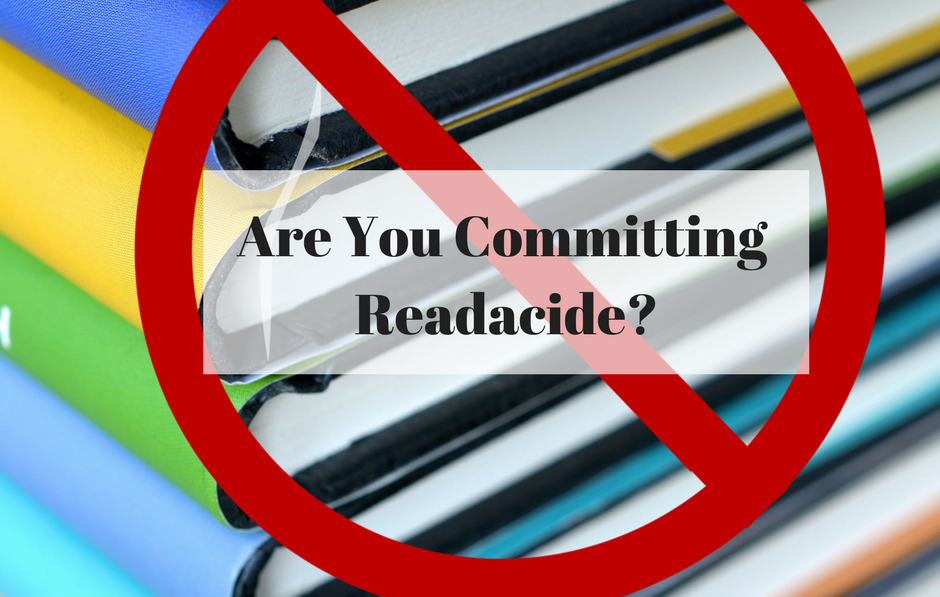 There are many reasons to develop a love of reading. Reading, like playing tennis or a musical instrument, is a skill. When we read, we are practicing a skill, and as with any skill, the more you practice the better you will get. If you enjoy reading, you will be more likely to read, and more reading makes you a better reader.
There are many reasons to develop a love of reading. Reading, like playing tennis or a musical instrument, is a skill. When we read, we are practicing a skill, and as with any skill, the more you practice the better you will get. If you enjoy reading, you will be more likely to read, and more reading makes you a better reader.
Reading also helps us to bridge cultures, to learn about other people and places that we may not have had the chance to experience first hand. Reading is a source of unending information about almost any subject imaginable. It is a key to success in school and in life.
No parent or teacher would intentionally try to lessen a child’s success by killing the love of reading, but it happens every day.
Here are some ways adults unintentionally kill the love of reading:
- Using long sessions of round robin reading.
You remember this from childhood. Going around in a circle, or up and down a row, each person reads a paragraph followed by the next person. Good readers are bored and read ahead. Poor readers count the paragraphs before their turn so they can silently practice it so they won’t look foolish. No one is actually paying much attention to the student who is actually reading. The lesson? Reading is boring.
- Asking students to read as a punishment.
When reading is assigned as a punishment for some infraction, the message is that reading is a punishment. Enough said.
- Never allowing students to choose their own reading material.
Our knowledge, abilities, and interests vary widely. We are more interested in reading when we have a choice in our reading material.
- Allowing students to read only when all of their work is done.
In school, this often means that the students who most need to practice reading don’t get any time to read. Reading is seen as an “extra” and not as something important.
- You don’t model a love of reading.
Children imitate adults. If they never see an adult read, they are not likely to understand the value of reading. If adults don’t think it is important, why should children?
- You don’t allow students to reread a beloved book.
Good readers often reread favorite books. There is comfort and joy in rereading. It also helps beginning readers to develop fluency. Rereading is a sign of a good reader.
We hope that you are not committing readacide with your students.
Do you want to help students to develop a love of reading? Here are some things you can do:
Read aloud to children every day.
Share your favorite books.
Encourage daily reading.
Take children to the library.
Buy children books.
Let children see you read.
Talk about what you are reading.
Building a love of reading isn’t rocket science. It is possible to promote reading and good reading habits. We hope you are doing all things in your power to help students to develop a love of reading and ultimately, to be good readers.
Happy reading,


Unfortunately, the education system in Singapore is such that there is no time for reading – there’s just too much homework, tests and exams.
Hello Agatha, being a good reader will only help students to do well on homework and exams. Reading for pleasure is one aspect of reading, but reading more improves reading skill as well.
I am lucky my son has a love for reading. We go to the bookstore often and I read to him every night. He excels at reading but unfortunately not math!
Hi Kim, It is so wonderful that you encourage your son’s reading! Not all parents do. If he likes reading he will be a better reader and that will help with all subjects.
These are all great points. I hated that round robin reading in school. I was one of the bored and reading ahead, but what was worse was listening to some of my classmates who never did learn to read well. I felt so bad for them. I do think that personality plays a role in this as well. My youngest can read fine, but doesn’t much care to. It’s crazy to me.
Hi Leslie, there is no benefit in humiliating students who don’t read well by forcing them to read orally. Some people think that this is how you will help them be a better reader, but only PRACTICED oral reading will help you read aloud more fluently. I hope your daughter finds some books that she loves.